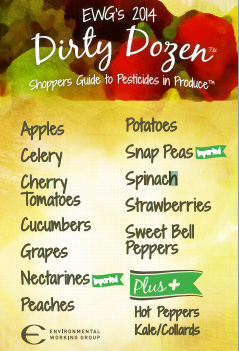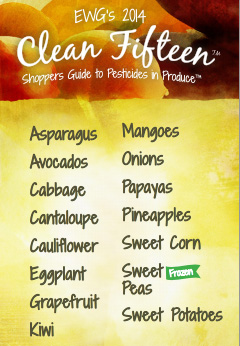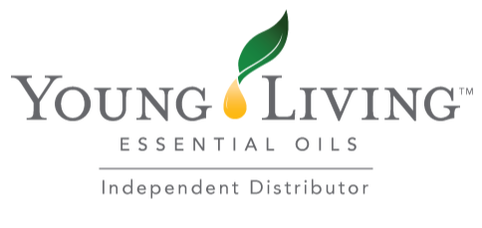|
Know WHERE your buying: When it comes to buying organic food, you have many options on WHERE you get it. Regular chain grocers tend to charge a higher premium for organic fruits and vegetables. I opt to purchase my organic produce from stores like Trader Joes and Sprouts, as they tend to have more organic options and have closer relationships with local farmers. Your BEST bet for saving on organic produce is going to the source. Farmers Markets, or the farms if you are lucky to live in a rural area where you can build those relationships. Even living in a metropolitan area like Phoenix, there are co-ops through my Naturopath's office, or through farmers at the Farmers Markets where you can sign up to get a box of organic goodness delivered monthly to a designated pick up location. Kind of like I am doing with my Honest Essentials Bundle for my house cleaning supplies. Know WHAT your buying: To save money, not EVERYTHING you buy has to be organic. While in a perfect world we'd all eat healthy, organic food all the time, however, when we're trying to save, there is a happy medium we can apply to find balance and save some pennies. The EWG published a list of the DIRTY DOZEN. These are the fruits and vegetables most likely to be heavily contaminated with pesticides and other nasties. I also buy all of my frozen fruits and veggies that I use in my soups and smoothies organic, because I don't know where the non-organic products come from before they are bagged. On a happier note, there is also a list called the CLEAN FIFTEEN. Vegetables and fruits with thicker skins, usually ones that aren't eaten, help to protect that food from exposure to excessive toxins. This makes them ok choices to buy non-organic. Remember to still wash them very well. I have mixed fruit and vegetable washes, I just soak them for a long time in water and scrub the skins lightly without harming the fruit or veggie. If you are going to opt for a fruit wash, I suggest Honest Co. fruit and veggie wash since it itself is organic and pure. *Nosh&Nurture does not agree with corn being listed on the Clean Fifteen, since most corn is GMO. Being grain-free, I also don't consume corn. I also buy organic cabbage, as I think it's just as exposed as lettuce. Know how to keep it fresh:
Now you have all of this tasty, healthy organic food at home that you paid a little more for. How do you make it last? Remember that keeping produce in the fridge, as opposed to on the counter, is going to help it last much longer and help prohibit mold growth for a longer period of time. I generally keep my fruit in the fridge. I'll keep my sweet potatoes, onions, avocados and bananas in my fruit bowl. Also, a great way to keep onions, garlic and shallots fresh for MONTHS, you have to check out this post at The Yummy Life blog, this idea is genius. When it comes to looking at organic living from a financial perspective, remember, you will be saving a large amount of money by NOT going out to eat. By replacing your meals with home cooked, organic food, you can easily get a few healthy meals out of what you'd pay for one meal in a restaurant that doesn't pack nearly as much nutritional value. Mr. Charming and I were easily spending a lot more when we'd go out all the time than we do now. So while the grocery bills may seem a bit heftier, in the long run your health, family and wallet will thank you.
0 Comments
Leave a Reply. |
Welcome! My name is Mandi & I hope you stay in this happy little space a while. I'm a Christian, a wife to my Mr. Charming, mama to baby Greyson, healthy food-lover, traveler, professional journalist and Personal Nutritionist who hopes to inspire others with my story...
Join the email list to stay informed on new posts, recipes and exclusive giveaways.
October 2017
|
contact |
aboutNosh & Nurture was born of this journey I am on to better the health of myself, my family and those around me. What started as a simple compilation of recipes has grown to a all-around lifestyle journal with ways to incorporate organic products into your home, pantry and beauty cabinet. I also include stories on pregnancy, new motherhood, travel, Proverbs 31 marriage, and spiritual health, as I am a Christian who couldn't do any of this without my Lord & Savior Jesus Christ. For more of my story you can click here.
All recipes are gluten-free and dairy-free with a lot of soy-free, grain-free, sugar-free options. |
additional links
|
All content herein is owned by Mandi Pimental,Nosh & Nurture and The Clean Plate with Mandi. Pinning images is allowed, however, reposting blogs, recipes, photos or additional content without a link back to NoshandNurture.com is prohibited.
© 2012-2023 Nosh & Nurture. All Rights Reserved.
Website by Weebly. Photography, Graphics and Content by Mandi Pimental, unless otherwise credited.
© 2012-2023 Nosh & Nurture. All Rights Reserved.
Website by Weebly. Photography, Graphics and Content by Mandi Pimental, unless otherwise credited.









 RSS Feed
RSS Feed


